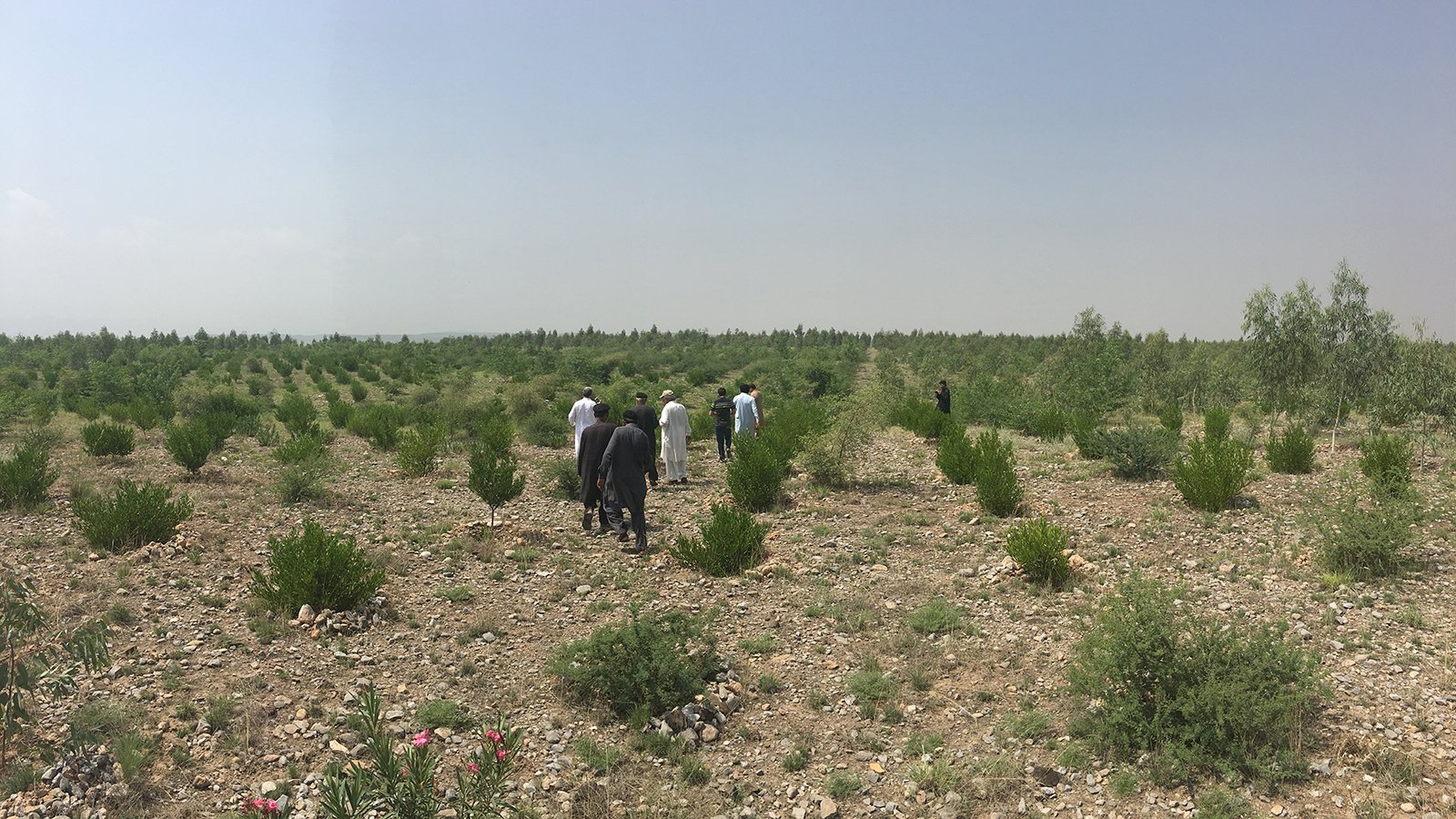KP is almost done planting one billion trees. Are the other provinces up for the challenge?
In 2016, Pakistan’s north-west province initiated the billion “tree tsunami,” to restore forests and green covers lost to...
A few years back, Garhi Chandan was an ochre, vegetation-barren area on the outskirts of Peshawar. Today, it carries a large sign that reads, “Billion Tree Tsunami Afforestation Project (BTTAP).” The once pale 800-hectares landscape is now sprouting with varying hues of greens, thanks to the massive tree plantation undertaken by the Pakistan Tehreek-e-Insaaf led-Khyber Pakhtunkhwa government.
But before the seeds could be planted, and the saplings prepared, there was resistance from the neighbourhood. Residents were sceptic of what they thought was a ruse by the government to grab their lands. After much convincing, they came around. “Now we have this forest in our area,” says Adil Zaman, a local, “People I know are working as watches or safe keepers of the site.” The project is estimated to have created over 0.5 million indirect jobs in the province, according to government officials.

In 2016, Pakistan’s north-west province initiated the billion “tree tsunami,” to restore forests and green covers lost to decades of feeling and natural disasters, in a country ranked as the top ten most vulnerable to climate change.
With barely a year behind it, the project is already showing results. Like Ghari Chandan, there are 13,000 other nurseries that stretch for miles, and 45,000 closure sites - protected areas to ensure that existing trees are not chopped down.
The KP authorities say they have planted over a 4.5 million saplings in Peshawar, Nowshera, and Charsadda. While an estimated 0.6 million hectares of land in the province is being utilized for the survival and growth of trees.
“These small and large-scale nurseries are the lifeline of this project,” explains Tahir Khan, a nursery in-charge, “Bags of seeds are provided to the community, for free, to plant at their own homes and lands. Making our province green again should be a community effort.”
The reforestation target is not simply planting one billion trees, as has been popularly perceived. The project has three parts: One, to boost natural regeneration, therefore protecting existing forests and shrubs. Two, to ensure new plantations in the southern and central region, Hazara region and Malakand region. Three, to encourage farm forestry by distributing seeds to farmers to plant on their agricultural lands.
“We are only four million away from reaching our one billion target,” a jubilant Shafqat Munir, a forest conservator, tells Geo.tv, “We should achieve our billion tree target by end September,” months ahead of the earlier deadline of December 2017.
Apart from pushing to increase the green cover of the province, authorities are also working to ensure no future damage can be done to the trees they plant. Over 700 illegal wood cutting machines have been seized in and around Peshawar. For now, only mature trees or trees that can spread diseases are allowed to be cut down.
For now, there are two types of saplings being produced in the nurseries - potted and bare rooted saplings. Potted saplings are kept inside test tube looking instruments to help them grow.
In January 2016, the World Wide Fund Pakistan, which is monitoring the project, noted in a report that 34 different species are being raised at the nurseries: Eucalyptus was 33.31 per cent, Chir Pine 30.78 per cent and Phulai 8.43 per cent. It further stated that Eucalyptus was not a natural fit in the area; hence its numbers should be reduced.
Keeping in view the WWF recommendations, the number of Eucalyptus seeds has since been slashed and is now only 19 per cent of the total plantation, according to Muhammad Tehamsip, the Project Director. He further adds that the cost of the entire project was earlier estimated to be Rs. 22 billion, but the project is nearing completion by using only Rs. 14 billion.
Other numbers are just as encouraging. The project boasts that in just one year it has increased the net forest area from 20 to 26 per cent in the KP. Moreover, 13 per cent of the total nurseries will be looked after by local women.
Once successfully completed, this project could be extended to the other three provinces in Pakistan, a country that has forests in less than 3 per cent of its land area.